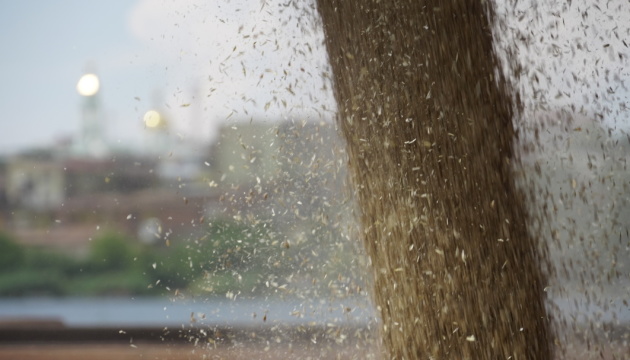
European Commission sees no negative impact of Ukrainian agri-exports on EU markets
According to an Ukrinform correspondent, the deputies also exchanged views with members of the European Commission (EC) on the risks to EU farmers from the growth in the supply of Ukrainian products.
The EC monitors volumes, price dynamics, import price at the national level as well as prices at the EU level, and the EC publishes a monitoring report every two months. So far, the EC doesn't see any significant negative consequences for the EU agricultural market, said Pierre Bascou, Director for Sustainability and income support, DG Agriculture and Rural Development, European Commission.
The Commission is working to develop solidarity lanes and reduce transit costs, as it wants Ukraine to continue to contribute to global food security and to be able to continue to export its products to the EU as well as beyond, the speaker said.
According to MEPs, the solidarity lanes have been a lifesaver for the Ukrainian economy and have allowed for the export of more than 108 million tons of goods and the import of 38 million tons of other products, totaling €123 billion. These volumes increased significantly after the opening of the Black Sea route.
In October, out of the 4.5 million tons of grain and other related products exported from Ukraine, 3.2 million tons passed through the solidarity lanes and about 1.3 million tons through the humanitarian Black Sea corridor.
It is necessary to minimize the negative impact on European farmers, MEPs say. In their view, the surge in exports to the EU, which is so important for the Ukrainian economy, has had some unintended consequences in some regional markets in frontline member states, and has also put pressure on certain sectors in the EU.
Mazaly Aguilar, Vice-Chair of the Committee on Agriculture and Rural Development, said that Spanish ports are overwhelmed with grain not only from Ukraine but also from Russia, at incredibly low prices. With such import pressure, they cannot continue to operate. The EU has to show its solidarity with Ukraine, but not at the expense of their grain producers, she said, urging the Commission to take measures to prevent European grain producers from going bankrupt.
At the same time, Spain, where grain production fell by more than 40% this year due to unfavorable weather conditions, is in dire need of grain.
MEPs believe that the transit of Ukrainian grain through the EU to final markets should be supported in the first place. Also, some of them suggest, the World Food Fund could be more active and buy some of these grains.
Unlike grain, imports of Ukrainian sugar to Europe are not a concern.
Sugar prices exceed €800 per ton, which is extremely high in historical terms. So, the EU sugar production this year is estimated to reach about 15.6 million tons, which means that imports will be necessary, Norbert Lins, the Chair of the Committee on Agriculture and Rural Development, said.
The EU wants to see Ukraine as an EU member in the future. It is a major producer, AGRI Committee member Martin Häusling stated. But, according to him, a long-term plan is needed to balance the protection of European producers and assistance to Ukraine. One cannot expect the war to end in three months, one needs to get used to this situation, he added.
In mid-September, the EC did not extend the ban on imports of Ukrainian grain to neighboring EU countries.
At the same time, to control Ukrainian exports to the EU and avoid a surge in grain prices, the EU introduced a system of licenses. Such documents can ensure that grain from Ukraine destined for a third country does not remain in one of the "frontline" states but rather transits to its final destination.
As reported, Ukraine has already exported more than 12 million tons of grains and pulses in the 2023/2024 marketing year (started on July 1).




